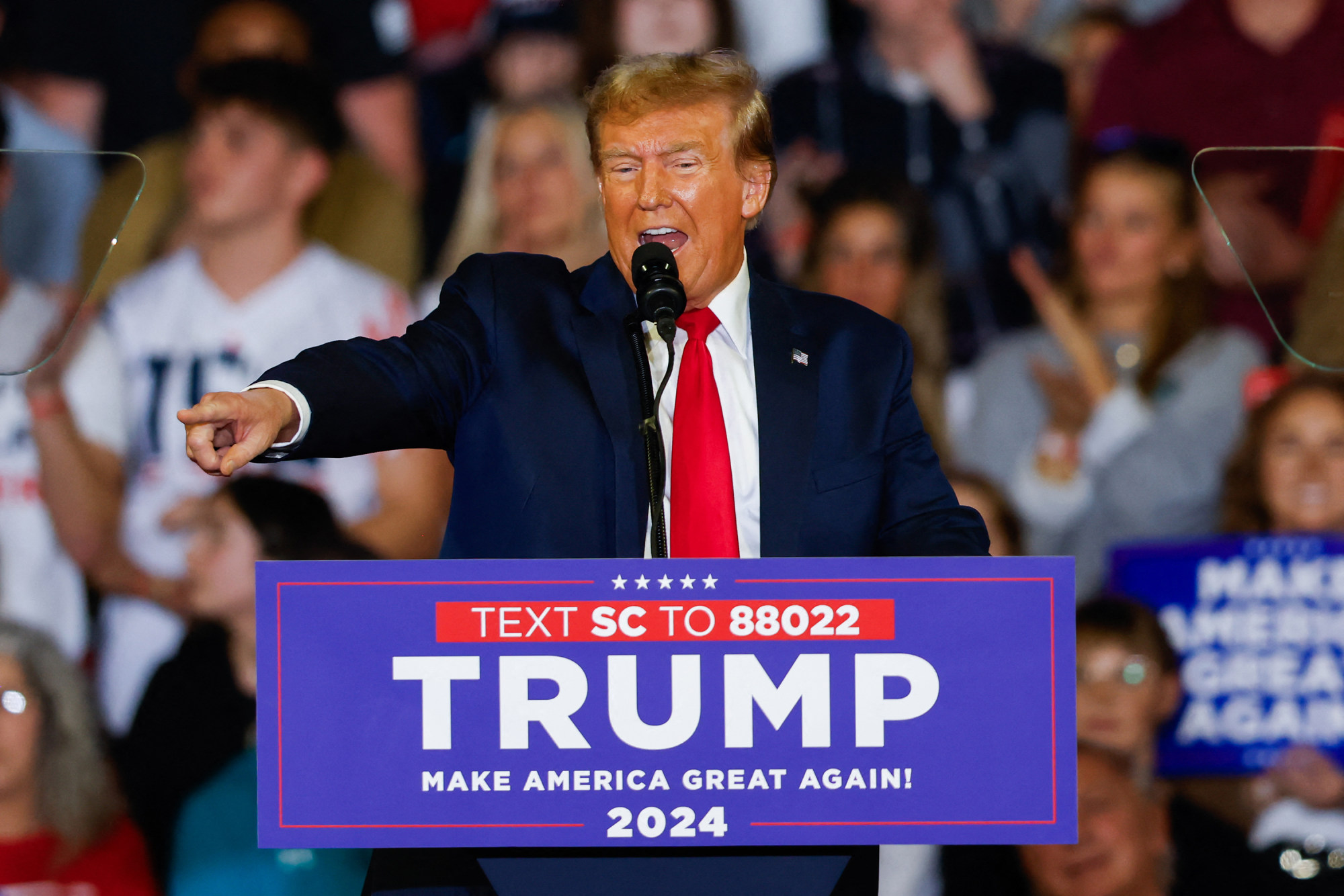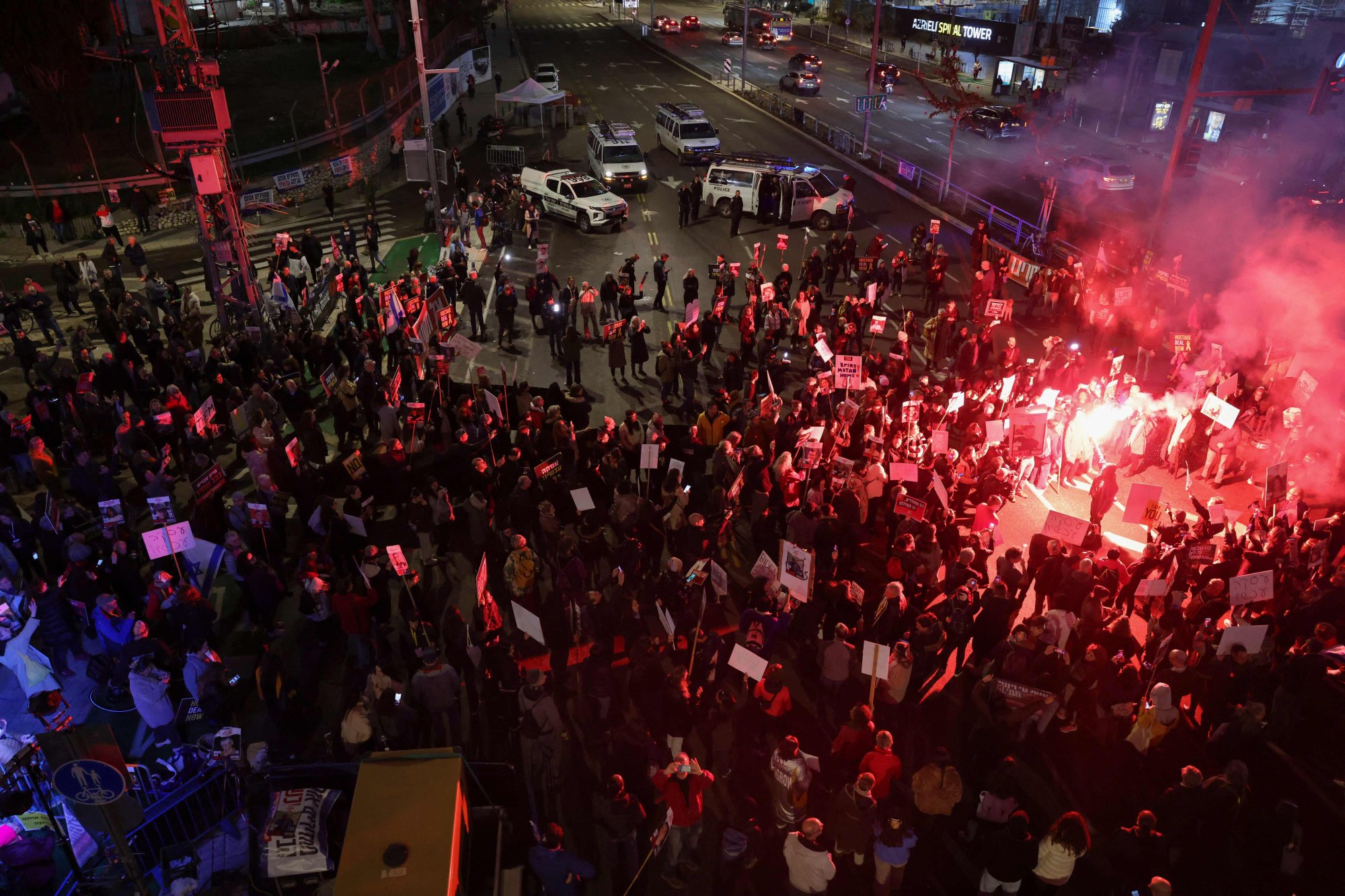On Friday, as Wang touches down in Munich to speak at the same forum, observers anticipate Washington will be the elephant in the room again.
The US State Department said Secretary of State Antony Blinken would meet Wang at the Munich Security Conference on Friday.
Immediately after his speech, a panel with Blinken, Indian External Affairs Minister Subrahmanyam Jaishankar and German Foreign Minister Annalena Baerbock will take the stage.
China to champion ‘equal and orderly multipolar world’ at Munich security forum
China to champion ‘equal and orderly multipolar world’ at Munich security forum
His assertion dominated political discourse in Europe this week and is likely to loom over the diplomatic proceedings in Munich this weekend.
“The key question for all these upcoming meetings is not if but how actively Wang will push Beijing’s mantra about US unreliability in response to European alarm about Trump,” read a note from the Mercator Institute for China Studies (Merics), a German think tank.
The Chinese foreign ministry said Wang’s speech on Saturday would focus on “China’s propositions on building a community with a shared future for mankind and advocating an equal and orderly multipolar world”.
Analysts believe the Chinese envoy will try to find openings for Beijing’s interests amid European panic over a possible second Trump presidency.

“The Munich Security Conference is often a space for China to not only have bilateral meetings with European and American leaders but also to provide calibrated messages on its global ambitions,” said Abigaël Vasselier of Merics.
“This year’s meeting will definitely be the place to watch to learn about China’s current views on European security and the future of the transatlantic partnership.”
Trump aside, Wang will land in an increasingly war-weary Europe, with the Russian invasion of Ukraine ticking towards its second anniversary.
In Brussels on Wednesday, Hungary was again the only one of 27 member states to oppose a new package of sanctions designed to hobble Russia’s war machine.
China opposes ‘unilateral sanctions’ over Ukraine as EU proposes new trade curbs
China opposes ‘unilateral sanctions’ over Ukraine as EU proposes new trade curbs
Reports indicated Hungary specifically objected to the listing of three mainland Chinese and one Hong Kong entity on an EU blacklist for helping Russian firms evade EU sanctions and access dual-use goods made in Europe.
Last year, there was still some hope in Europe that Beijing could help broker a ceasefire in Ukraine. But these days EU expectations are more measured.
Compared with last year, there is little chatter of a meeting between Ukrainian and Chinese officials. The Munich Security Index, a survey released ahead of the summit, showed a majority of Ukrainians saw China as a “threat” rather than an “ally”.
“Nobody expects Beijing to intervene positively, but with Trump on the horizon, we will more and more see leaders managing their personal relations with China so that they don’t start actively helping Russia,” said a senior EU diplomat, who spoke on condition of anonymity.
EU’s plans for tougher China stance risk coming off the rails
EU’s plans for tougher China stance risk coming off the rails
Meanwhile, on the other dominant geopolitical issue of the day, the Middle East, the bloc is profoundly divided.
As other members stand by Israel’s right to defend itself, tensions within the bloc have mounted.

Insiders anticipate the Middle East will also be a core focus of EU dialogue in Munich, but with little margin for Beijing to reap benefits over these geopolitical issues.
“In foreign affairs it may look like Europe has lots of divisions, but they are not big enough for China to exploit,” said Miguel Otero of the Elcano Royal Institute, a Madrid-based think tank.
Nato chief praises US for China policy shift under Donald Trump
Nato chief praises US for China policy shift under Donald Trump
“They have enjoyed recent Chinese overtures like visa-free business travel and are also natural proponents of ‘strategic autonomy’, which China has encouraged in the interest of preventing US-EU alignment.”
“China sees Spain as a reasonable actor in Europe at a time of a change in attitudes towards China in the EU, particularly in the east and north,” said Otero. “In Spain, China is still seen as a partner that we have to work with.”
As China contemplates more trade probes, EU emphasises need to ‘follow rules’
As China contemplates more trade probes, EU emphasises need to ‘follow rules’
Observers view France, meanwhile, as playing a two-sided game. It too is open to Chinese investment in hi-tech industries, including electric vehicles and batteries, even as it teeters on the cusp of a trade spat with Beijing.
It was Paris that urged the European Commission to investigate subsidies in the Chinese electric-vehicle sector, spurring a retaliatory probe into subsidies in its brandy sector.
“It would be very easy to antagonise China, but largely counterproductive,” said Marc Julienne of the French Institute of International Relations in Paris.
“It is understandable that France wants to retain good ties with China, the world’s second-most powerful economy,” he added. “But it is also legitimate to try and protect French and European interests.”

